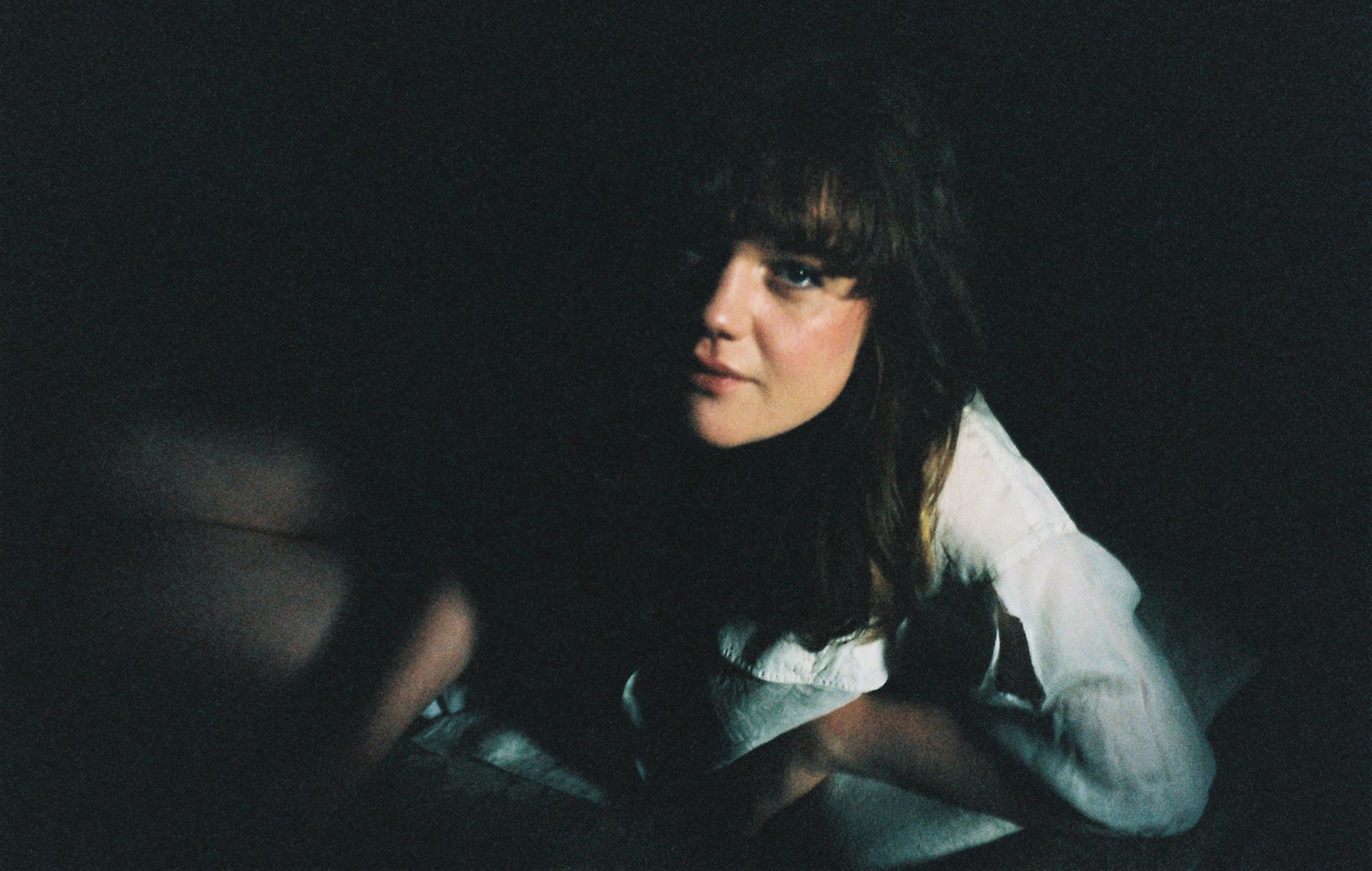
Sweet Whirl: Carole King and Jack Kerouac meet Beach House, as a Melbourne singer-songwriter turns to the world
Sweet Whirl’s Esther Edquist never minded being the centre of a room – provided it wasn’t one she was expected to sing in. The main lesson she took away from a university degree in classical voice was that she hated her own. It was too flowery; it was trying too hard. She spent close to a decade in Melbourne’s DIY scene with well-loved local outfits Superstar and Scott & Charlene’s Wedding. So when Edquist did sing, she used vocal reverb to cloak her lack of self-belief.
“I recorded an album, I’ve counted about nine times,” she tells NME. “There’s a lot of discarded albums lying around in people’s Dropboxes around Melbourne. I tried a lot of things.”
But in 2019, a song called ‘Patterns Of Nature’ and a beloved local label called Chapter Music set her straight. The song was typical of Edquist’s output as Sweet Whirl: a rousing chorus emerging briefly before focus diverts to wordy verses that had a “Neil Young-poignance”. Label co-owner Ben O’Connor made her a simple but perfect suggestion: ride out the metaphysical chorus-cry of “the patterns of nature have nothing on me”. Edquist was stunned. O’Connor had helped her smash the lock on her internal pop formula.

“I’ve always wanted to write songs like that but couldn’t quite push myself to. I couldn’t get over the self-loathing,” Edquist says.
Her shyness, Edquist says, seeped into her music. “It’s an unwillingness to use certain chords, an unwillingness to use certain refrains, because I’m like ‘Oh god, that’s a bit full on’. And then finding myself there with this epic chorus, and working out how to do that and singing that – that was definitely an ‘Aha!’ moment.”
So it’s no surprise that ‘Patterns Of Nature’ is a single on Edquist’s “true” debut album as Sweet Whirl, ‘How Much Works’. A 10-track collection of sharp-tongued piano pop, it’s a quiet demonstration of how Edquist might just be one of the best singer-songwriters in the country.
NME virtually meets Edquist before a backdrop from an ISOL-AID performance two days prior: a neat record collection, with a copy of Brian Eno and Jon Hassell’s ‘Fourth World Vol. 1 Possible Musics’, and a stacked bookshelf is on display. Edquist is excited to be putting out recorded material now, because isolation “isn’t the most conducive environment to be writing bangers”.
“The singles have been a six-week reminder that I do exist in the world and I’m not just sort of locked away in a jar,” she laughs.
It’s a strange time to be promoting music, and stranger still to be a musician quote, unquote, breaking through. But otherwise, everything seems to be going according to plan for the Melburnian. Her music appears to have cracked the streaming service playlist algorithm for the first time (“That was the ambition…”), and gained significant overseas blog buzz. Edquist said it’s simply the first time she’s ever done music “properly”.
“[I wasn’t] leaving things to chance and [leaving it up to the ‘sound of the room’] and all this whimsy-shit I had. It was to do this really seriously, get the right takes. ’Cause I am a perfectionist. It was ’fessing up to the fact that I am a perfectionist,” she explains.
The record’s title developed after Edquist misread the title of David Byrne’s book How Music Works years ago. The phrase ‘How Much Works’ stuck with her.
“I think it encompasses this feeling of uncertainty but also the activity,” she says. “You’re doing the job of trying to make things work, but you’re also unsure. It’s also a question.”

Edquist’s approach to songwriting is similar. She plays songwriting Jenga, testing hypotheses one musical building block at a time. “You shake out bits of the song and work out what you want to keep and then you see what else is possible,” Edquist says.
“When I write songs, I naturally write them in 4/4 time and then I will throw them through different time signatures just to see what happens. To see if I can get rid of a chord.”
The deceptively complex time signatures on the album work many of the quiet arrangements into an ethereal waltz. It’s what gives single ‘Something I Do’ a floating stutter, ‘Sweetness’ its synthetic plod. The result sounds like a meeting between Carole King and Beach House. But she departs from singer-songwriterly affectations of unsated emotion. Personally, Edquist dislikes unadulterated misery.
“When I write lyrics, I try and make it so that people can move forward,” she says. “A lot of songs I write start out as pure heartbreak and then I edit them when I’m not feeling that emotion anymore.”
“People say, I cry to your music all the time. I’m like ‘That’s okay, but I hope it’s a healing sort of cry’. All the best music connects you in the moment, it helps you feel these things, but it also shows you it’s worth going on.”
There’s a literary spectre haunting the album, too. Edquist works at a bookstore, something that’s never explicitly referenced in ‘How Much Works’, yet feels omnipresent in the music. One of the best lines on her new album is on ‘Weirdo’, when she makes fun of her own literary angst: “I’ve read my Camus / I’ve read my Sartre / Still drunk the morning after”.
“It’s being the whole drunken philosopher, beat-type person taking yourself very seriously but also never really finishing the book ’cause you just get pissed,” Edquist laughs.
“I also used to read a lot of Ginsberg poetry and Kerouac, even though it’s so cliché. The way they just spit out words is very rhythmic, but it’s also very easy and real. They really just talk about their lives. There is something about that that always just freed me up, where you talk about your life, you don’t make it too abstract or fancy. It’s all there.”
But the album doesn’t work on words alone. Edquist designed the sonic aesthetic of the album almost before anything else, after being dissatisfied with the hazy band-recorded folk of her 2019 cassette, ‘Love Songs And Poetry’. She recorded ‘How Much Works’ almost entirely by herself over the summer of 2019 in sound engineer Casey Hartnett’s sweaty Footscray granny flat. Edquist continued through the winter at the isolated-before-it-was-cool regional Victorian town of Point Lonsdale, where local producer Nick Huggins hosts a prized upright piano.
During the recording, she was adamant on one point: she didn’t want it to sound like “mainstream alternative” music of the last 20 years. Edquist used Beach House’s later work as a case in point. It’s a reaction to her reverb-drenched past, but also to the “bombastic” compressed production pumped out by modern producers. Yo La Tengo served instead as her and Hartnett’s unlikely analogue model.
“You can really tell it’s just the three of them, they’re doing it in the studio and they’re making it work with what they’ve got. There’s some beautiful production on their records but they never need to go over the top to make the point,” Edquist says.
But in large part, the new Sweet Whirl persona feels shaped by the hyper-Melbourne-locality of Chapter Music. (Devotees of the label will recognise the fuddy-duddy baritone of Gregor on a few songs.) Edquist’s solo career began in earnest almost entirely because she wanted to impress the label’s affable owners O’Connor and Guy Blackman.
“It felt like a benchmark that I wanted to meet. It was just one of those things that I always had in my mind. I wanted to write something that they would expect,” Edquist says.
They heard – and loved – a demo of hers called ‘Sydney’ five years ago, but Edquist had no other material to back it up. For years afterwards, she unsuccessfully sent them every song she ever made. They signed her last year on a promise that she could do better.
‘Patterns Of Nature’ is where they found how much worked. “I don’t even know what that song is about but I knew what it felt like for me and why I needed to sing it and what that meant for me,” Edquist recalls.
“I reckon it was my moment.”
Sweet Whirl’s new album ‘How Much Works’ is out May 29 via Chapter Music.



